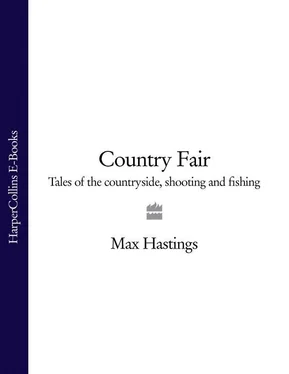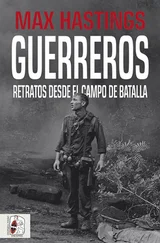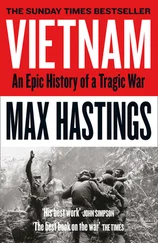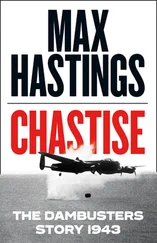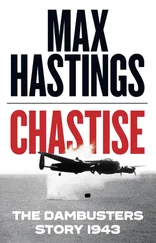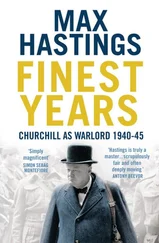The pheasants that clatter aloft unscathed at the end of an October partridge drive, taking flying lessons for November, offer promise of good things to come. Yet pheasant-shooting has suffered more than any other field sport from upheavals in the climate. At midwinter we want to shoot on cold, crisp days with a hard frost and maybe even a little snow. That is what our forefathers did. They wrote reams of doggerel extolling the beauties of Christmas cock pheasants paddling about in the drifts.
Today, instead, we find ourselves turning out again and again on mild, soggy days when nobody, including the birds, really wants to do it. The abolition of our traditional winter, especially in the south of England, is a blow to field sports. There seems little chance that God will change his mind and restore the old weather pattern – indeed, if anything, matters will become more difficult as the effects of global warming become ever more apparent. The best we can hope for, these days, is a few sharp, chilly days in January, towards the back end. I don’t know about you, but I have had enough by then. I feel ready to stop, flee from England for a while, then turn to the garden again. I never sob for anything lost on the first of February. I am merely boundlessly grateful for the fun I have had, and happy to wait for it all to start again with the trout in late spring. ‘To every thing there is a season,’ wrote the sage in Ecclesiastes, ‘and a time to every purpose under the heaven.’ The old boy never said a truer word.
T HE GREAT Richard Walker once suggested dismissively that ‘The most difficult thing about dry fly-fishing is to find somewhere to practise it.’ He seems right up to a point. Now that so few of even the great south of England chalk streams offer truly wild fish, the art of the dry fly is diminished from the days Skues and Dunne knew. Yet for many of us, there remains a magic about fishing a river which is absent from still waters, save perhaps those of Scotland and Ireland. It seems worth every penny of the alarming cheques one must write, to savour the joy of casting beneath willows and among the rushes for a chalk stream trout. I would pay at least half the money each year merely for the privilege of walking the banks without a rod, watching the fish and the wildlife in summer. Even many professionals, I think, are drawn to a career in a fishery for the same reason.
The man who influences my own happiness on dry fly water more than any other lives in a modest cottage maybe half a mile from my own home, and a long cast from the river where he plies his trade – no, surely we should call it a profession. My daughter remarked the other day that she reckons only one in ten of the people she knows have jobs which they enjoy. This seems a fair guess. It does not represent mere sentiment to suggest that the career contentment quotient is higher in the country than in town. Those fortunate enough to forge a lifestyle working with nature are more likely to achieve happiness than people who merely massage money through their working days.
Our local river keeper, Stephen Jones on the Kennet at Chilton Foliat, seems one of the most fulfilled men I have ever met. Everybody who meets Stephen goes away muttering that he ought to be chairman of Microsoft or suchlike. He is forty-six, bright, decisive and fluent. But no, all his life he has wanted only to be a river keeper. This is fortunate for those of us who fish with him, because he is very good at it. And maybe it is also lucky for him. Here is a man who knows exactly what he wants, and knows that he has got it. He grew up in Southampton, where his father worked in a bank. It remains a mystery whence sprang his enthusiasm for running streams. The family used to visit the New Forest a lot, and as a teenager Stephen did some pretty unsuccessful fishing on the public water of the Itchen estuary. But somehow the idea of working on a river got into his head, and stayed there. His father always said: ‘Make sure you get a job you enjoy.’
A family farming friend mentioned that Sparsholt College was starting a fishery management course. Stephen enrolled for it. Meanwhile, at sixteen, when he left school – ‘They didn’t think I was the sharpest knife in the box’ – he spent a year’s apprenticeship on the Test at Broadlands. There, he says wryly, ‘Working among men I did a lot of growing up very quickly.’ After college he spent three years at Packington Fishery in Warwickshire, which he enjoyed but found very commercial: ‘Rods really wanted their pound of flesh.’ Then as now, he himself fished very little. Like gamekeepers who scarcely trouble to shoot, Stephen is a typical river keeper in that he gains his pleasure from living with the water, and from watching others cast. He is a good entomologist, but learned about insects from watching fly on the water, rather than from books. He knows his birds, is less confident with plants, ‘But I’m still learning.’
He came to the Kennet in 1982, at a time when the Chilton Fishery was in poor health, after years in thrall to a Thames Conservancy policy designed to speed flow and improve field drainage for the only rural activity that seemed to matter in those days – growing corn. The estate syndicate could not sell all its rods, and was losing money. Stephen worked at increasing weed growth, putting bends back into the stream. He started rearing his own trout for stocking at the end of the season, ‘Which is a big plus at the beginning of the next one, because you don’t have a river full of gullible fish.’
Today, there is a long waiting list for rods, and Chilton is famously one of the prettiest stretches on the river. Stephen loves the variety of the fishing: ‘Because the main river and the carriers are so different, there’s always somewhere to get out of the wind, always somewhere to find a bit of shade, always somewhere you can get away on your own.’ His own summer day starts at seven when he feeds the fish, walks the dogs and checks his fenn traps – he catches half a dozen mink a year. There are new rods to be shown around, and duffers like me who always need advice on flies. Towards evening there are also occasional poachers, ‘white van men’, usually in their early twenties, never alone, often plying a handline which they can drop in the water if they are spotted, to remove the evidence. They are the reasons for Tiger and Lizzie, Stephen’s German shepherds, without which experience has warned him not to try consequences with intruders. He seldom bothers to call the police, because they come so slowly.
He says that his real pleasure in the job, beyond the beauty of the place, is meeting people. ‘There used to be three old boys who came every Tuesday – a High Court judge, a former Hong Kong governor who’d been in Changi Jail, and a survivor of the sinking of the Repulse. I’d see them every lunchtime, and we’d sit down for a chat. They weren’t boasting at all, but when you listened to those men and thought about what they’d seen and done…’
In summer, Stephen is a keen bowler for a local village cricket team. When there is no fishing in the winter, he loads and beats a bit. Out of season, he and his wife Fiona also travel, usually somewhere exotic. Two years ago it was Namibia, last time California. Fiona is Australian, from a country district a few hours outside Melbourne. They have been married for ten years, and she is a successful executive with Vodafone. Stephen is full of admiration for her swift rise: ‘She’s clever and she’s Australian, which means she’ll always say, “Let’s give it a go!” We don’t do that here, do we?’
I asked Stephen about the common mistakes he sees fishermen make. ‘They don’t look enough. They’ll cast to a fish without noticing there’s another one in between. Some people think that to be fishing, you’ve always got to be plying a rod. Time spent looking before you do anything is the trick. It’s always a mistake to move too quickly, to rush around the river.’ Does he never get restless? ‘Never yet. I’ve not seen anywhere the grass is greener. Maybe towards the end of a season I might start to get a bit weary, then I see a rod coming down here for the first time, really excited about fishing. There are two Americans who cross the Atlantic every year, just to fish here. I think to myself: they’re willing to come all that way, to be on this water. And I feel proud.’
Читать дальше
